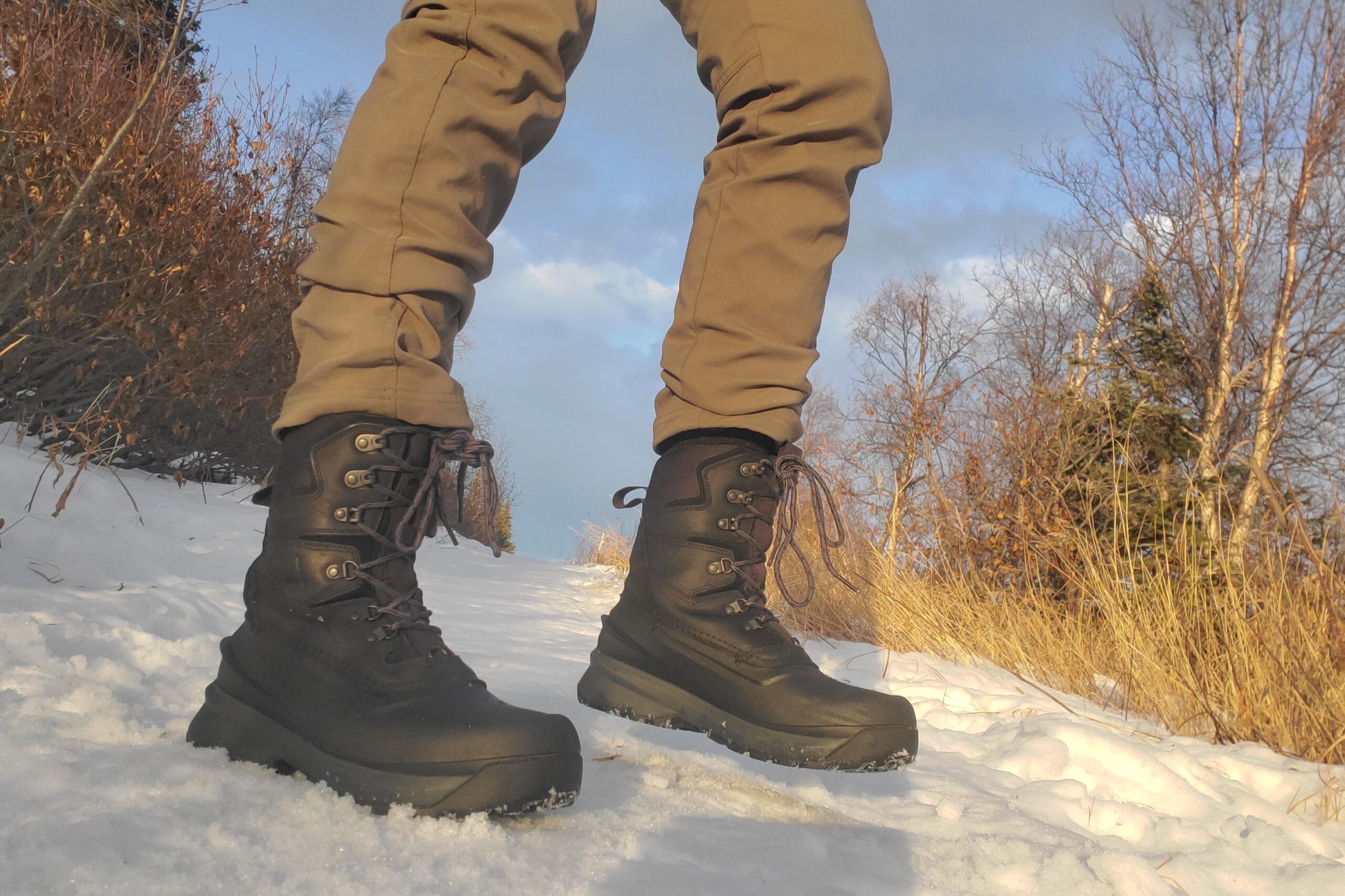Bottom Line
When it comes to finding one boot that works all winter – no matter the conditions – the Chilkat V 400 is the perfect choice. Taking this boot out day after day in Alaska’s harsh winter conditions, the Chilkat quickly proved itself to be one of our top performers in our men’s winter boots guide. We tested these boots in wet, cold, and deep snow, and they took every condition in stride.
Though comfortable to wear, these boots are clunky and cumbersome to hike in for long distances due to their bulky build and stiff construction. Their wider toe box provides plenty of room for warmth but that also adds weight and leaves our feet shifting around, particularly when walking downhill. These aren’t the lightest boots on the market, either, However, the Chilkat’s weather resistance, comfort, and great insulation make it a great all-arounder for cold weather outings.
Quick Specs
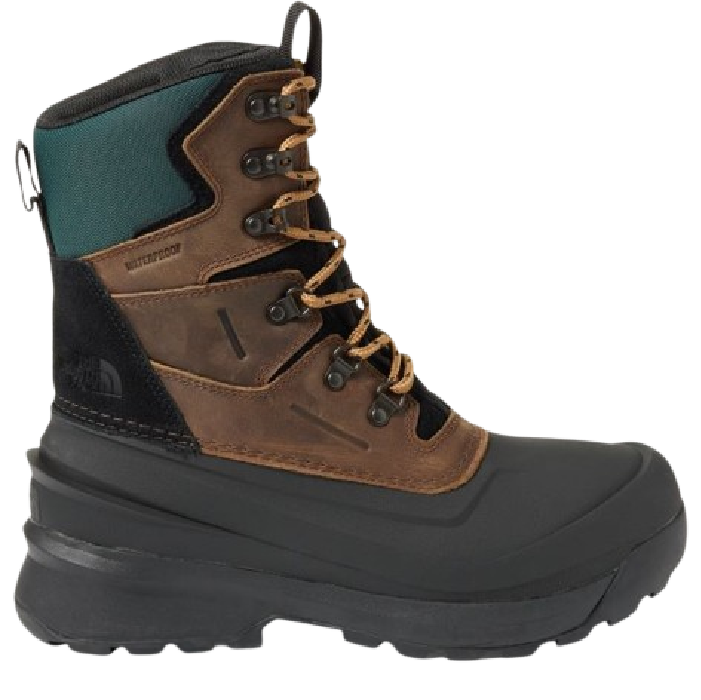
The North Face Chilkat V 400
Versatile winter boot
Price:
$190
Temperature Rating:
Not rated
Insulation:
recycled synthetic
Weight (Pair):
3 lb.
Height:
8 in
Pros
- durable
- warm
- great weather resistance
Cons
- break-in time
- not as tall as some winter boots

Comfort
The North Face Chilkat V 400 is an extremely comfortable boot that’s made for all-day use. We used these boots for many hours and miles, covering the snowy trails of Alaska’s Chugach Range. We never once noticed any fatigue in our feet, and the insoles remained soft yet supportive throughout our testing. Even though these boots strike a reasonable balance between weight and comfort, they might not be the ones to take out on long treks where weight is a concern.
The padded shaft of the boot is comfortable around the ankle and calf when tightened, and a padded interior protects the foot and lower leg. These boots are stiff, so it takes some serious tightening of the laces to get to the point where the ankle feels supportive. With the lacing system not running fully down the length of the foot we noticed our feet shifting within the boot as the forefoot did not feel as secure as in other boots we tested. This was especially noticeable when walking downhill. We recommend pairing the Chilkat V 400 with at least a shin-high sock. Some movement and shifting within the boot causes shorter socks to sag, and the material of the shaft can feel scratchy on bare skin.
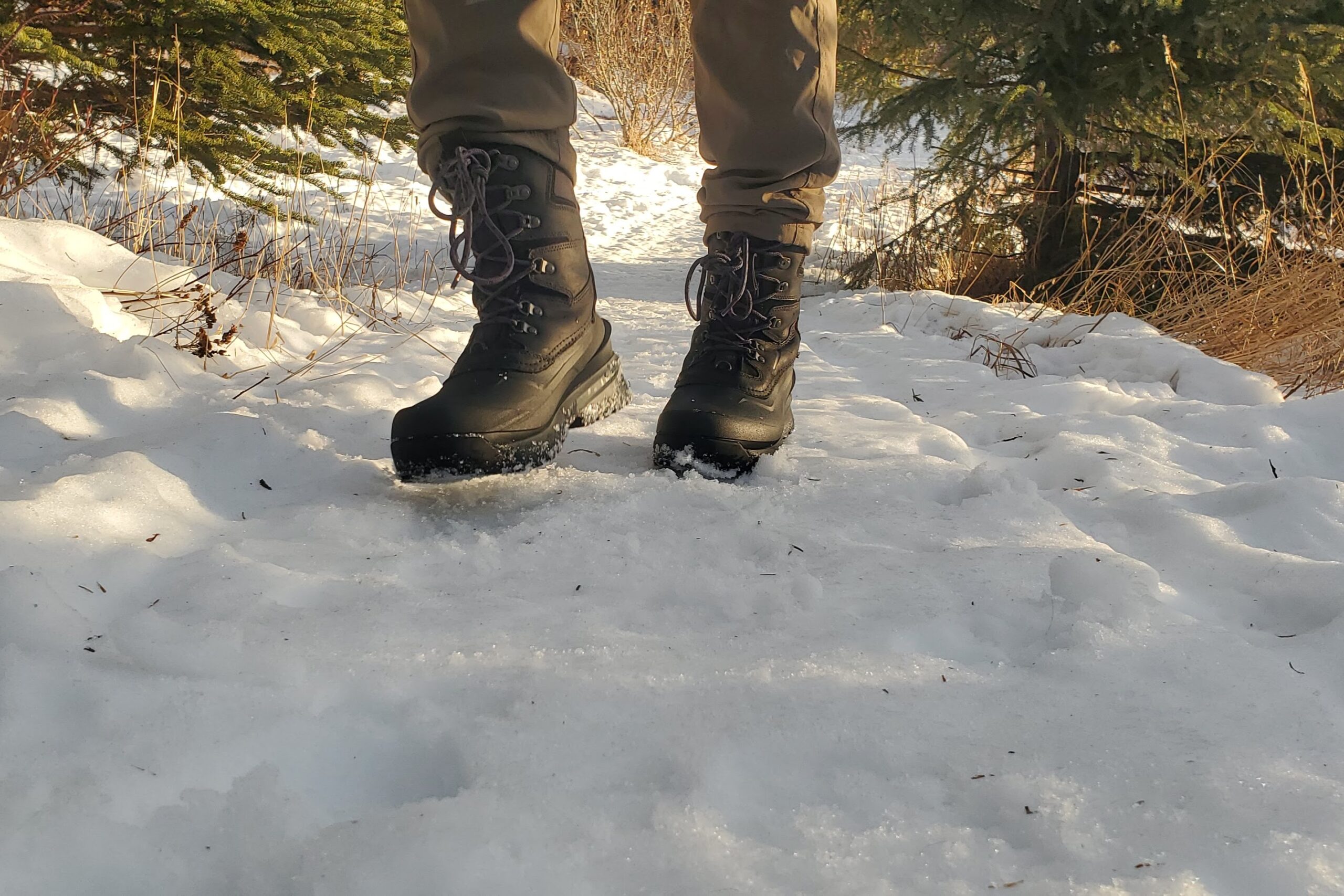
Warmth
We took The North Face Chilkat V 400 out in some of the coldest temperatures the Alaskan winter has to offer. From above freezing to below zero, it was reliably comfortable and warm. 400 grams of HeatSeeker Evo provides outstanding warmth without any excess bulk. While the standard version of the Chilkat V comes with 200 grams of insulation, we found the 400-gram weight to be an excellent amount of insulation to take almost any temperature in stride.
When temperatures dipped below zero, we found that this boot was nearing its lowest temperature threshold. While we were moving and exercising, the boots were plenty warm, but they felt cooler when we were at rest. Because of how well these boots are insulated, they do not breathe as well as others tested. This causes some sweat to build up during exertion, which can lead to cold toes in the long run. In warmer temperatures around freezing, this boot may be overkill.

Traction
When looking at the soles of the Chilkat V 400, they look almost identical to many hiking boots. With a pattern of multi-directional, sharp-edged lugs, they provide serious grip across multiple surfaces. Taking these through packed trails, ice, and deep snow, we walked with confidence knowing we came armed with some of the best traction out there.
The only disappointment is that these boots are too clunky for most traction devices like microspikes and ice cleats. We tried pairing ours with this boot for added security in steep terrain, but the boot is simply too large-bodied to accept most ice cleats -unless you order an extra-large traction device specifically to pair with the boot. Fortunately, the traction on these North Face boots is more than enough for most situations.
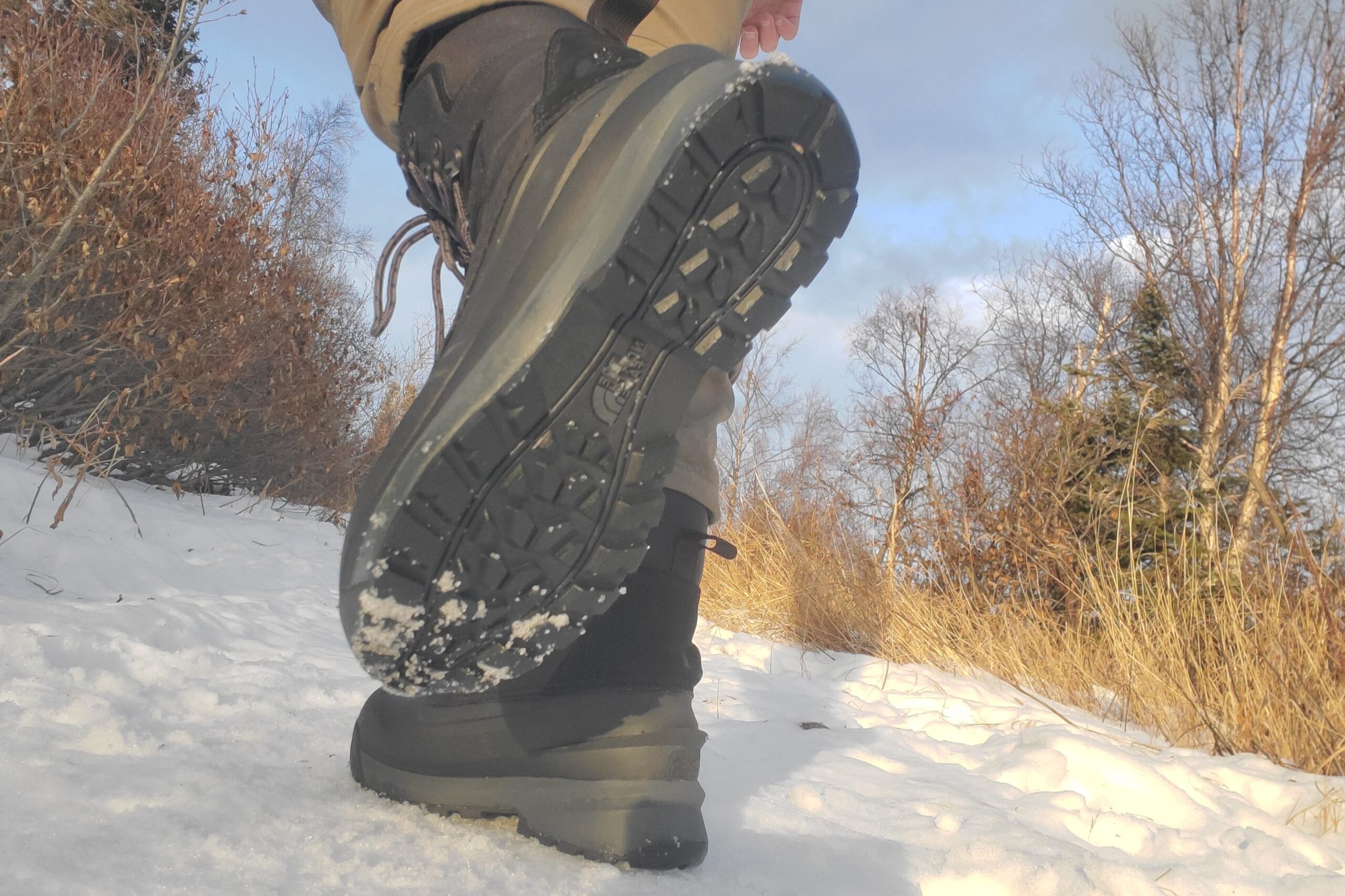
Weather Resistance
The Chilkat V 400s provide outstanding weather resistance through the lower foot thanks to their TPU shell. This shell is thick and durable and kept all water and snow at bay, even as we sloshed through slush and puddles. An eight-inch shaft height is not the tallest in our lineup but did an adequate job of keeping most snow and moisture at bay. The boot does gape open at the back of the leg, even while tightened, which leads to snow entering when walking through deep drifts. The boots do come with a gaiter attachment point to extend weather resistance higher than the boots’ 8-inch cuffs.
Though we wish that the rubber extended higher than ankle-high for added security and peace of mind, the waterproof, seam-sealed full-grain leather upper was more than adequate to keep our legs dry and snow out.
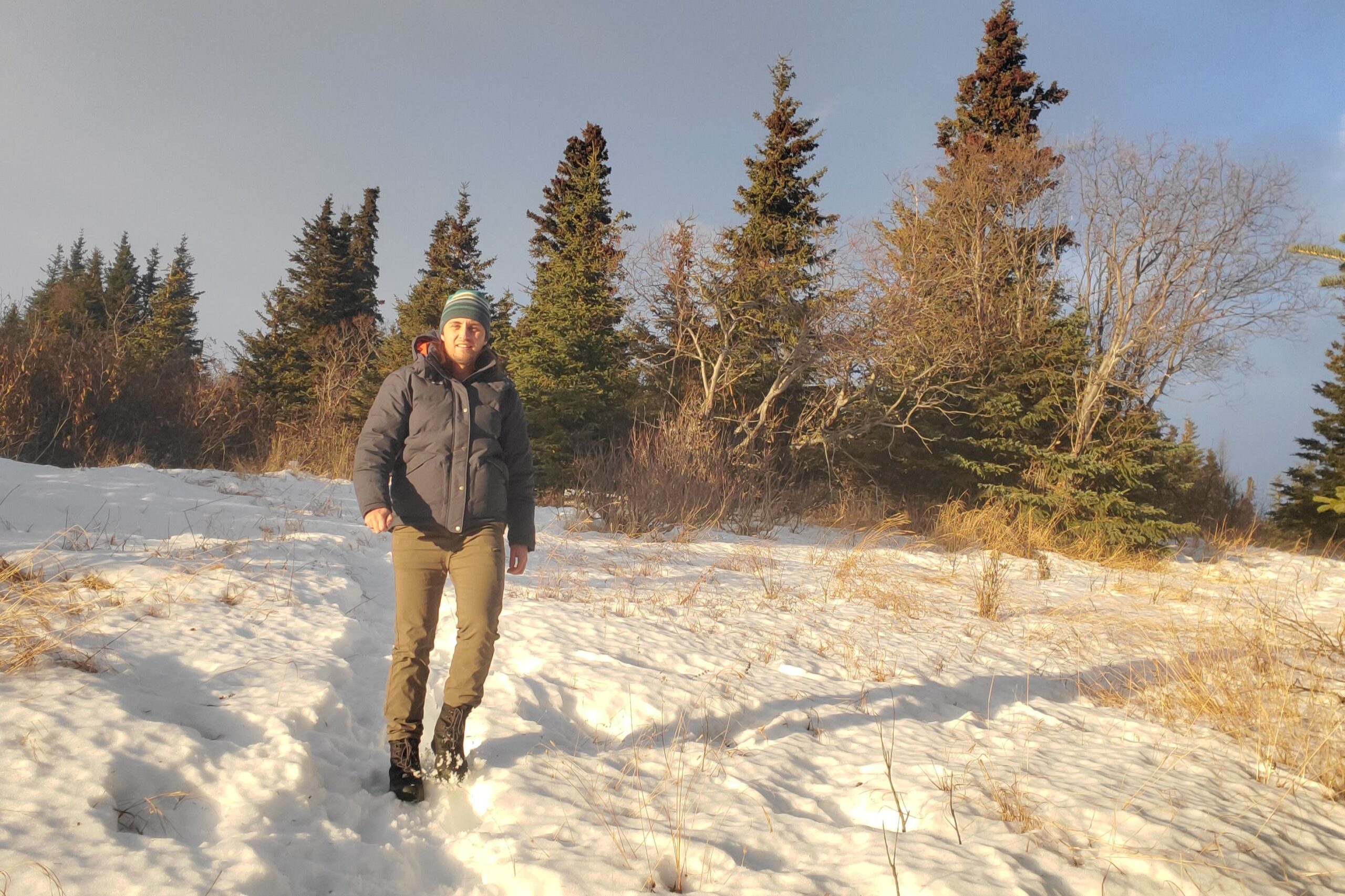
Durability
At an attainable $159, we found the durability of these boots to be on par for the price point. After our testing, we noticed creases around the bottom of the shaft that caused the top portion of the boot to tilt over a few degrees off its original vertical. These creases ran where the rubber lower meets the synthetic upper. In addition, the toe crease point of the boot has no articulation or flex point built-in, so we wonder about that point’s integrity over the long term.
The outsole has continued to perform highly with no changes in traction, and all the lugs remain intact. Some design choices give us pause about the multi-year longevity of the boot, but it has held up well in our tests with only minor cosmetic scuffs over time.
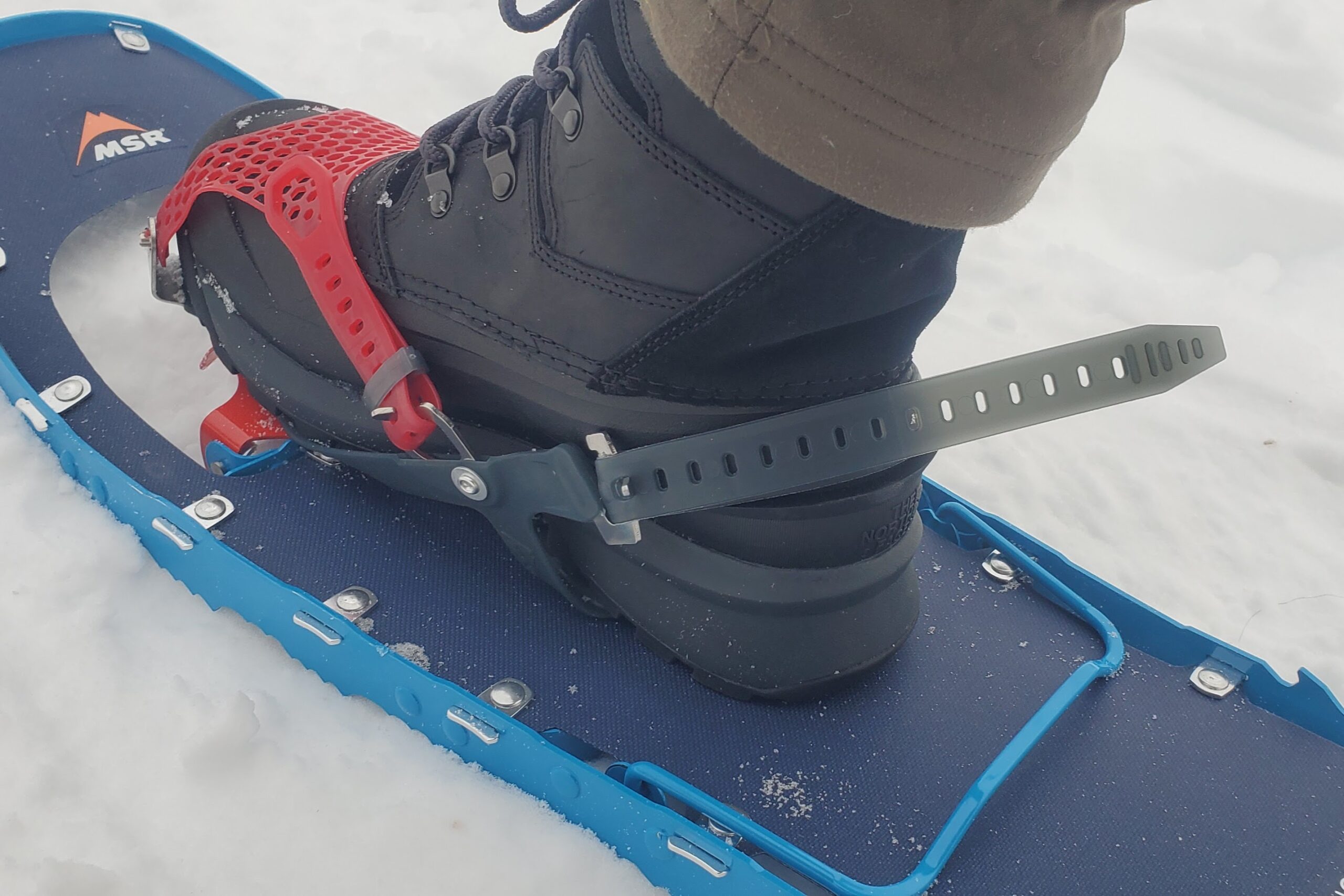
Should You Buy the North Face Chilkat V 400?
If you’re to buy one boot to use in every condition this winter, then the Chilkat V 400 may just be the most well-rounded option. With an appealing style and a high degree of weather resistance, warmth, and comfort, this is a boot that almost every winter recreator can enjoy. The lower price point does come with some tradeoffs, however. The weather resistance is not as robust as the others we tested due to the lower height of the rubber outer and the mid-height shaft. The boot is clunky and stiff. Although it strikes a reasonable balance between warmth and weight, it is just heavy enough to not be our first choice for long hikes – and it’s not nearly as light as other winter hiking boots we tested, such as the Salomon X Ultra Snowpilot or Merrell Nova 3 Thermal.. At the end of the day, this jack of all trades from The North Face is dependable across a variety of conditions -a boot we know will appeal to many winter enthusiasts.
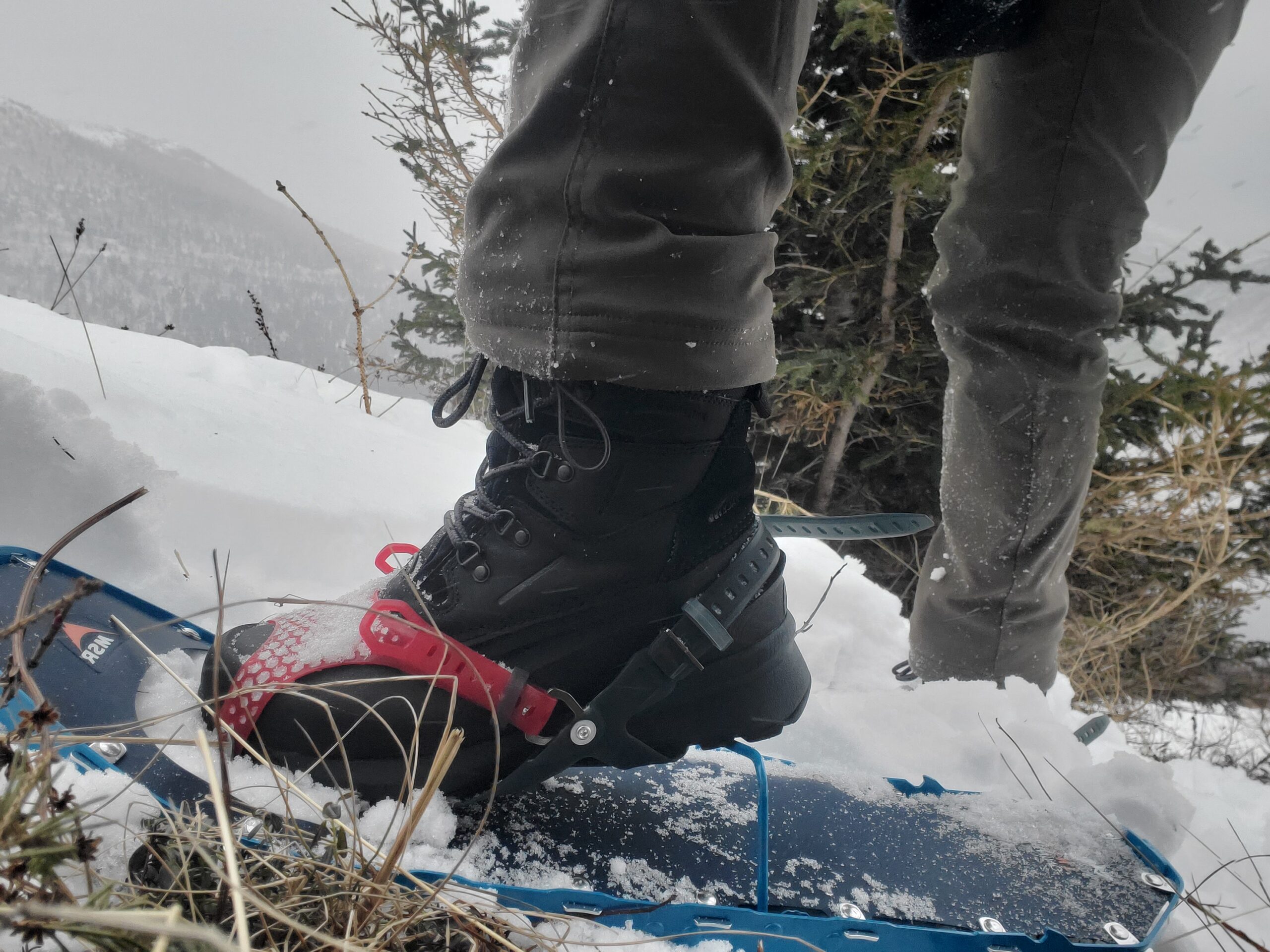
What Other Men’s Winter Boots Should You Consider?
Our Men’s Winter Hiking Boot Guide has several great options tested and reviewed by our Alaska-based gear analyst.
Sorel Caribou Review – If you loved the warmth of the Chilkat V 400, but you’re still looking for something burlier and warmer, then check out the Sorel Caribou.
Keen Revel IV Polar Review – With a stronger hiking focus, the Keen Revel IV Polar is warm and durable but lightweight enough for those looking to cover serious miles in their winter boots.
Boggs Bozeman Tall Review – If the medium shaft height of the Chilkat left you wanting more, then the Boggs Bozeman has got you covered with one of the tallest shaft heights and the highest degree of weather resistance in our lineup.
